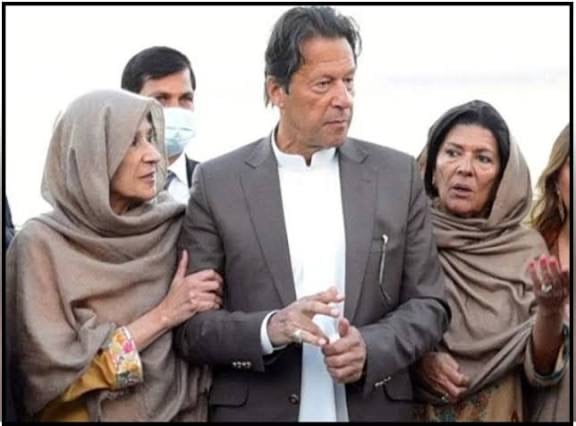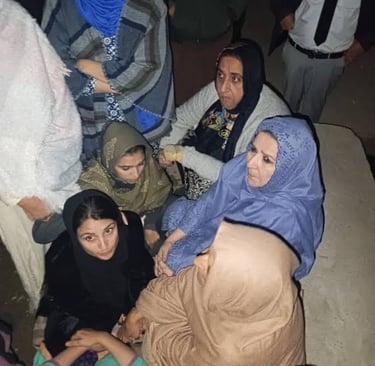The Isolation of Imran Khan: A Tale of Power, Prison, and Defied Court Orders
The analysis of sit in protest by Imran Khan sister’s in adiala
POLITICS NEWS
Political Reporter
11/19/20253 min read


For two years, former Prime Minister Imran Khan has been incarcerated in a legal battle his supporters decry as politically motivated. Yet, beyond the courtrooms and charges, a more visceral struggle is unfolding—one over the most fundamental human dignities: the right of a prisoner to see his family. This is not just a legal issue; it is a raw demonstration of power, and the Punjab government stands accused of using it not to uphold law, but to break a man and his supporters.


A Family Denied, A Court Defied
The flashpoint came on November 18th. Imran Khan's sisters arrived at the prison for a scheduled meeting, a right that should be routine. Instead, they were met not with compliance, but with defiance. Local police officials, acting on orders that supporters allege came from the highest levels of the Punjab government, barred their entry.
This was not merely an administrative hiccup. It was, according to legal experts and PTI leadership, an open flouting of court orders. Reports indicate that the Lahore High Court had previously directed the government to facilitate family meetings. By turning his sisters away, the state was not just being stubborn; it was allegedly engaging in contempt of court, signaling that its political will trumped judicial authority.
Peaceful Protest Meets a Violent Response
Refusing to be silenced, Imran Khan's sisters, alongside a small group of party workers, organized a peaceful sit-in to protest the denial. Their demand was simple: implement the court's order and allow a family meeting.
The state's response was anything but peaceful. In a scene that has become tragically familiar, water cannons were deployed, soaking the protesters in a chilling display of force. But the ordeal did not end there. After a 10-hour standoff, police launched a crackdown.
The images and accounts that emerged were shocking:
· Noren Khan, an 80-year-old woman, was allegedly dragged by her hair—an act of violence against a senior citizen that defies all norms of decency.
· A sitting Member of the National Assembly (MNA) from Khyber Pakhtunkhwa was reported to have been slapped by police, highlighting the disregard for political representation.
· Imran Khan's sisters were arrested, only to be later released not in the city, but allegedly abandoned on the side of the road near Chakra—a move seen as a deliberate act of humiliation and intimidation.
A Fundamental Right, A Political Weapon
In any country that adheres to the rule of law, meeting a prisoner is a fundamental right, safeguarded to ensure humane treatment and family connection. In this instance, that right appears to have been weaponized. The message from the government, as interpreted by critics and protesters, is clear: "We are the rulers. We control access. We control the narrative."
This case transcends the individual plight of Imran Khan. It raises grave questions about the erosion of civil liberties and the use of state institutions to punish political opponents and their families. When the police, tasked with protecting citizens, are perceived as instruments of political vendetta, the very foundation of public trust is shattered.
An Unanswered Question: The Silence of the Authorities
In an attempt to present a balanced account, our team repeatedly contacted the Punjab Police for their official stance on these serious allegations. They were consistently reluctant to provide their view, offering no justification for the denial of the family meeting, the violent crackdown on the sit-in, or the treatment of the protesters.
Their silence is deafening. In the absence of any official explanation, the narrative of a state acting with impunity and a government prioritizing control over compassion remains unchallenged. The people are left with a simple, damning question: if these actions are lawful and just, why won't the authorities simply say so?
